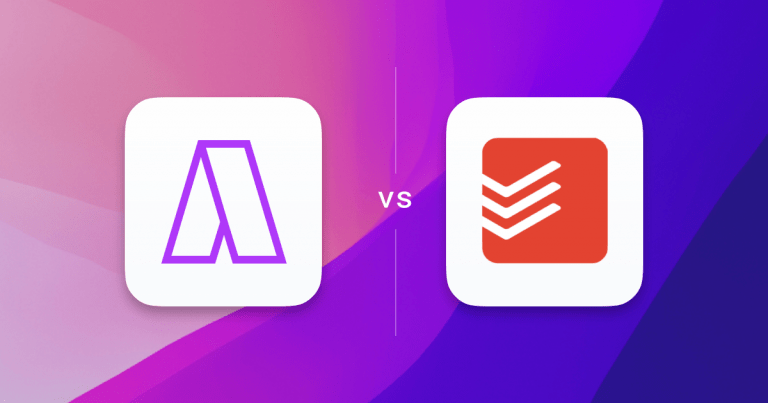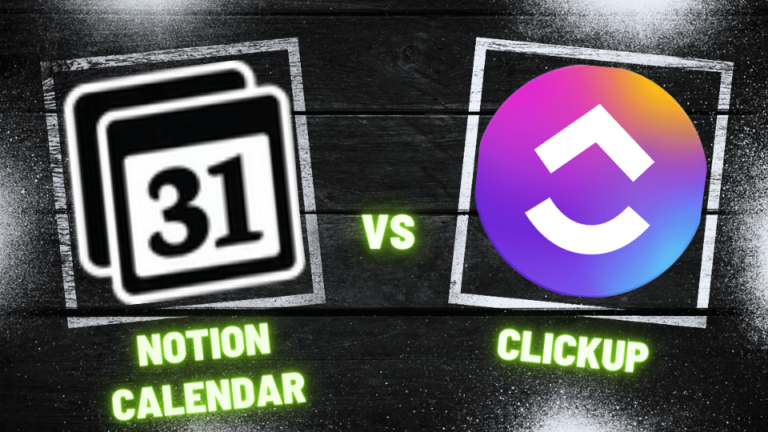What is Clickup
ClickUp is a project management software that stands out for its customizability and flexibility. It’s designed to accommodate both small and large teams, offering an all-in-one productivity tool for effective collaboration and time management. ClickUp is praised for its hierarchy system that includes spaces, folders, and lists, enhancing task organization and real-time communication through comments and chats. It offers a variety of views like Calendar, Board, and Box, along with real-time collaboration features, task automation, and an extensive range of ClickApps for customization.
Key Features of Clickup
- Real-time Collaboration: ClickUp supports team collaboration with features like a whiteboard, comments, chat, and more, enabling efficient real-time communication and idea sharing.
- Customizable Task Management (ClickApps): The platform offers a wide range of ClickApps, similar to add-ons, that allow users to tailor the task management experience to their specific needs, enhancing flexibility and organization.
- Diverse Viewing Options: Users can choose from various views like Calendar, Board, and Box, providing multiple perspectives for managing workspaces and tasks, ensuring that teams can work in the way that suits them best.
- Task Automation: Regular tasks can be automated in ClickUp, saving time and boosting productivity. This feature is especially beneficial for repetitive or routine tasks, streamlining workflow efficiency.
- Comprehensive Dashboard: ClickUp’s dashboard provides a clear overview of projects, including task tracking, goal setting, and team performance insights, helping in effective project management and decision-making.
- Time Tracking Tools: The platform includes time tracking tools that allow for setting estimated times for tasks, aiding in better time management and resource allocation within teams.
What is Notion Calendar
The Notion Calendar, previously known as Cron Calendar, is a calendar application designed for managing meetings and events. It integrates closely with Notion documents, allowing users to connect their Google calendars, schedule meetings, manage events, and collaborate on upcoming events. It supports video conferencing links for platforms like Zoom and Google Meet, offers color coding for time blocking, and has deep integrations with Notion databases.
Key Features of Notion Calendar
- Google Calendar Integration: This feature allows users to seamlessly connect their Google Calendar with Notion, enabling efficient management of events and meetings within a unified interface. It simplifies scheduling and updating events across platforms.
- Meeting Booking Functionality: Notion Calendar offers a user-friendly interface for scheduling meetings. This includes options for setting up recurring meetings, sending invitations, and managing RSVPs, streamlining the meeting planning process.
- Notion Page Connectivity: Users can link calendar events to specific Notion pages, facilitating better organization and access to related notes, tasks, or documents associated with an event. This integration enhances productivity and project management.
- Video Conferencing Integration: The calendar supports adding video conferencing links from popular platforms like Zoom and Google Meet directly into event details. This feature is particularly useful for remote teams and virtual meetings, offering convenience and efficiency.
- Color Coding and Time Blocking: Notion Calendar allows users to color code their events for better visual organization. The time blocking feature helps in allocating specific time slots for tasks, aiding in time management and daily planning.
- Cross-Platform Availability: It is accessible on various platforms including iOS, Windows, Mac, and the web. This cross-platform availability ensures users can manage their calendars and stay organized regardless of the device they are using.
Clickup vs Notion Calendar: Features
| Features | Clickup | Notion Calendar |
|---|---|---|
| Integrations | Gmail, Zoom, Harvest Time Tracking, Unito, Slack, Make, PomoDone, TimeCamp, Time Doctor, LambdaTest, DueFocus, and Twilio | Notion, Zoom, Google Calendar |
| Calendar | Yes | Yes |
| Platforms | macOS, iOS, Android, Web, Windows | macOS, iOS, Android, Web, Windows |
| Task Management | Labels, tags, recurring tasks, checklists, and task dependencies | No |
| Natural Language Processing | Not mentioned | No |
| Time Blocking | No | Yes |
| Analytics | Yes | No |
| Meeting Scheduler | ClickUp integrates with scheduling tools like Google Calendar but does not have a native meeting scheduler. | Yes |
| Time Zones | Yes | Yes |
| Reminders | Yes | Yes |
| Customer Support | Average | Average |
| 1:1 User Onboarding | No | Yes |
| Pricing | Free Plan with basic features, Unlimited at $5/member/month, Business at $12, Business Plus at $19, and a custom-priced Enterprise Plan, each progressively offering more advanced features and functionalities | Free |
Clickup vs Notion Calendar: Pricing
Clickup Pricing
ClickUp’s pricing plans include:
(i) Free Plan: Offers essential features for simple task management.
(ii) Unlimited Plan: $5 per member/month, billed annually, for unlimited tasks, integrations, and dashboards.
(iii) Business Plan: $12 per member/month, billed annually, includes advanced features for mid-sized teams.
(iv) Business Plus Plan: $19 per member/month, billed annually, ideal for multiple teams.
(v) Enterprise Plan: Custom pricing, offering advanced security and control for large organizations.
Notion Calendar Pricing
Notion Calendar is free to use for Notion users
Clickup vs Notion Calendar: Reviews
Clickup Review
ClickUp is recognized for its customization and flexibility, catering to both small and large teams. It offers a structured workspace with a variety of tools for project management, task management, and real-time collaboration. ClickUp is also appreciated for its dashboard overview and time tracking tools. However, ClickUp can be overwhelming for beginners due to its extensive features and options. Users would need some time to explore and fully utilize all the functionalities ClickUp offers. It’s best suited for teams that require comprehensive project management tools and are willing to invest time in learning the system.
Notion Calendar Review
The Notion Calendar, previously known as Cron Calendar, is appreciated for its seamless integration with Google Calendar and its ability to manage events alongside Notion project timelines. It’s praised for its intuitive scheduling features, support for different time zones, and a modern, clean design. However, some users might find limitations in advanced features like detailed task analytics or the lack of more diverse integrations beyond Google services. It’s suitable for both personal and professional use but might require additional tools for more complex task management needs.
Which One Should You Pick
Consider Clickup if
- You need a customizable tool: ClickUp is suitable for those who value customization in task management but be prepared for a steeper learning curve.
- You seek variety in task views: ClickUp’s multiple views like Board and Calendar are handy, yet they may initially overwhelm new users.
- You prefer integrating with other apps: While ClickUp offers numerous integrations, it might not be as extensive as some other tools, making it suitable for moderate integration needs.
Consider Notion Calendar if
- You Value Google Calendar Integration: If syncing with Google Calendar is central to your workflow, Notion Calendar’s integration can streamline your scheduling process, although it may lack variety in other third-party integrations.
- You Utilize Notion for Project Management: The calendar is beneficial for those already using Notion for project management, but it might not offer the depth required for more complex task management outside the Notion ecosystem.
- You Prefer a Clean, Minimalist Design: Its straightforward and clean design is ideal for users seeking simplicity, but it may not satisfy those needing more intricate or customizable scheduling features.
Best Clickup and Notion Calendar Alternatives
- Akiflow: Akiflow is a time management app offering time blocking, task scheduling, and integrations with various tools. It focuses on productivity and organization through a unified task and appointment interface.
Akiflow Price: $19 per month, paid annually - Asana: Asana is a project management tool focused on team collaboration and work organization, offering multiple views for task management, app integrations, and AI features for efficiency. It’s suitable for various team sizes, streamlining workflows and aligning goals.
Asana Price: Asana offers three plans: the free Personal plan for basic needs, the Starter plan at $11.59 for expanded features like timeline view, and the Advanced plan at $25.69 for comprehensive project management tools including time tracking and advanced customization. - Google Tasks: Google Tasks is a task management app, allowing users to create, manage, and prioritize tasks directly from their smartphone.This app is particularly useful for those already embedded in the Google ecosystem, providing a synchronized task management experience across devices.
Google Tasks Price: Free

Best Time Blocking Web and Desktop Apps, 2024
Explore the best time blocking apps of 2024! Discover how Akiflow, TickTick, Usemotion, Sunsama, Sortedapp, and TimeHero revolutionize productivity, offering unique features for professionals and students to manage tasks and enhance efficiency.

Improve Focus: 5 ADHD Productivity Tools & Calendar Apps for 2023
Discover five of the best apps and tools for those with ADHD, from note-taking apps to time-blocking platforms. Get ready to stay organised, motivated and on track with Akiflow’s essential guide.

The Top 3 Todoist Alternatives (In-Depth Review)
Over 25 million people now use Todoist to stay on track and plan their day. It has expanded rapidly and is now a widely used task manager with seamless integrations into other task and calendar managers like Akiflow. While Todoist is hugely popular among its wide user base, there are now a variety of Todoist […]

